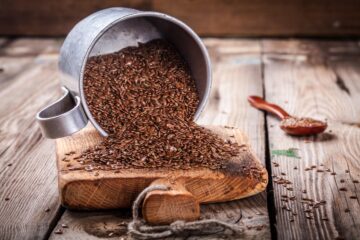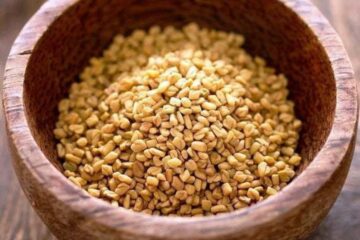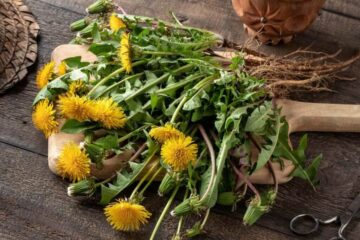Name:
Commonly referred to as Elderberry, this plant belongs to the genus Sambucus and is known scientifically as Sambucus nigra.
Description:
Medicinal Uses of Elderberry:
- Respiratory Health and Immune Support: Elderberry has long been used in traditional medicine to boost the immune system and alleviate symptoms of the common cold and flu. According to a study published by the National Institutes of Health (NIH), elderberry extract demonstrated significant antiviral activity against the influenza virus in vitro. Patients who were administered elderberry extract saw relief of symptoms on an average four days earlier than those who received a placebo. The study concluded that elderberry extract might offer an efficient, safe, and cost-effective treatment for influenza. You can find this study at the following URL: “https://www.ncbi.nlm.nih.gov/pmc/articles/PMC4848651/.”
- Anti-inflammatory and Antioxidant Properties: Elderberry contains flavonoids and anthocyanins, which have potent antioxidant and anti-inflammatory effects. The berries are also high in vitamin C, another powerful antioxidant. A 2020 review in “Antioxidants” pointed out that elderberry’s anti-inflammatory and antioxidant properties make it a potential therapeutic agent for a variety of conditions, though more research is needed. You can find the review at the following URL: “https://www.mdpi.com/2076-3921/9/1/19.”
- Cardiovascular Health: Elderberry has been suggested to support cardiovascular health due to its high concentration of anthocyanins. Anthocyanins are known for their role in reducing cardiovascular disease risk. A study published in the “Journal of Nutrition” noted a correlation between anthocyanin intake and reduced coronary heart disease risk in a large population of women. You can find the study at the following URL: “https://academic.oup.com/jn/article/136/10/2588/4746688.”
- Please note that while the medicinal properties of elderberry are promising, further clinical trials are needed to fully understand its effects and safety. Always consult with a healthcare professional before starting any new supplement or treatment.
- Metabolic Health and Diabetes Management: Elderberries have been studied for their potential to improve metabolic health and assist in diabetes management. A research study from the “Journal of Nutrition” demonstrated that anthocyanin-rich elderberry extract improved postprandial glucose and insulin responses in adults. However, further research is needed to fully understand the potential of elderberries in managing diabetes. You can access this study at “https://academic.oup.com/jn/article/146/4/773/4584692.”
- Cognitive Health: The antioxidant properties of elderberries may also play a role in cognitive health. A research study published by the “Journal of Agricultural and Food Chemistry” suggested that anthocyanins from elderberry could protect neuronal cells against oxidative stress, offering potential benefits for cognitive health. More studies are needed to understand the direct impact on human cognitive health. This study can be found at “https://pubs.acs.org/doi/10.1021/acs.jafc.6b05013.”
- Skin Health: Elderberry is sometimes used in skincare products due to its antioxidant and anti-inflammatory properties. A study published in “BMC Complementary and Alternative Medicine” demonstrated the potential of elderberry extract in improving skin hydration and wrinkle reduction, suggesting its use in cosmetic applications. Access the study at “https://bmccomplementmedtherapies.biomedcentral.com/articles/10.1186/s12906-019-2681-7“.
Origin and Distribution:
Cultivation and Care:
Elderberries require full sun or partial shade and thrive in well-drained soil with a pH between 5.5 and 6.5. These plants need regular watering but are drought-resistant once established. Elderberry plants should be pruned in early spring to encourage bushier growth and better berry production.
Harvesting and Storage:
Elderberries are typically harvested in late summer or early fall when the berries are fully ripe, usually indicated by a deep purple or black color. The berries should be stripped from the stalks and can be stored in a cool, dry place or frozen for later use.
Uses:
Culinary Uses: Elderberries are used in a variety of dishes and beverages, including pies, jams, wine, and cordials.
Medicinal Uses: Traditionally, elderberry has been used to treat colds, flu, and other respiratory ailments. More details on medicinal uses will be provided below.
Other Uses: The elderberry plant’s hollow stems have been used to make musical instruments. Its bark, leaves, and roots can produce dyes of various colors.
Safety Information:
Uncooked or unripe elderberries, leaves, bark, and roots can contain a cyanide-inducing glycoside, which can cause nausea, vomiting, and more severe symptoms in large quantities. Only ripe, cooked elderberries are considered safe to eat.
Historical and Cultural Significance:
Elderberry has been used for centuries in folk medicine and magic. It was thought to protect against evil spirits and witches. In Greek mythology, the elder tree was sacred to the goddess Venus.
Conservation Status:
Elderberry is not currently listed as endangered or at risk.




